The Ultimate Guide to Internet Censorship
Table of Contents
- 01 An Introduction to Content Monitoring and Internet Censorship
- 02 Why is Content Censored?
- 03 Internet Censorship Explained
- 04 Censorship Around the World
- 05 How Censored is Social Media?
- 06 How Censored are Online News Sites?
- 07 Censorship in Education
- 08 How is Online Censorship Achieved?
- 09 How to Avoid Censorship
- 10 Conclusion: How to Avoid Censorship in an Era of Enforcement
Editor’s Note: We value our relationship with our readers, and we strive to earn your trust through transparency and integrity. We are in the same ownership group as some of the industry-leading products reviewed on this site: ExpressVPN, Cyberghost, Private Internet Access, and Intego. However, this does not affect our review process, as we adhere to a strict testing methodology.
1. An Introduction to Content Monitoring and Internet Censorship
Internet censorship is becoming an increasingly relevant topic as various actors vie for control over the information that’s accessible on the web.
The importance of free and independent news and information outlets cannot be understated, as the free flow of information has a profound effect on how people are able to understand the world around them.
This has been strongly evidenced by the WikiLeaks scandals, where a considerable amount of information was made available due to the actions of whistleblower Julian Assange.
Without a free media where this information—which covered everything from goings on in Hollywood to the state of national security and wars in some countries—could be disseminated. None of the stories that were subsequently published would have come to light and the public would have been none the wiser.
Another whistleblower, Edward Snowden, was branded a “terrorist” by authorities after he leaked documents that revealed the extent of numerous global surveillance programs, some run by the US’s National Security Agency (NSA).
Snowden was forced to leave the US and has since become a naturalized citizen of Russia, where he has taken asylum to avoid being prosecuted under the Espionage Act for reporting factual information on the actions of high-profile individuals.
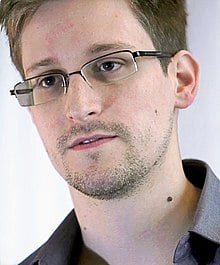
On a practical level, there is also considerable evidence that the majority of online activity is now monitored.
This is not just the case in countries that censor the internet, such as China, which has a more overt and obvious policy with regard to internet censorship. It also happens in the USA and Europe, though on a much more subtle level.
Google is essentially a massive database full of user queries often corresponding to a Gmail address (which is itself often linked with a phone number) and linking to the user’s IP address.
It’s no secret that Google, Facebook, and other conglomerates voluntarily give user data to the NSA. Yahoo and Microsoft were also revealed to have been collaborating with the NSA and giving away data on private citizens.
Google had, at one time, a special Dropbox server for the NSA. How much data actually passes from Google to the NSA isn’t known. However, it’s safe to assume that the NSA has access to all of Google’s data, whether directly or indirectly.
After all, the NSA was found to have colluded with AT&T to intercept the worlds transfer of communications, violating not just the privacy of US citizens (including via Skype calls and messages) but potentially the residents of China, Europe, Russia, and the Middle East.
While this does not strictly constitute online censorship, the fact that activity is being monitored is often the first step and an integral part of the censorship process. In this way, powerful players can monitor and shape public opinion even in the least censored countries.
2. Why is Content Censored?
Online trends are very profitable as governments and corporations can mine data in order to gain market insights.
This data can be used to rate in the predict electoral outcomes. It can also serve to empower the government to stamp out any activity that it deems contrary to its established narrative.
This may be most prominently evidenced in China, where public dissent is nipped in the bud before it can become a threat to the established hierarchies. Tiananmen Square is an example, where university students were massacred because they exercised their right to peaceful protest.
The primary reason for online censorship is to prevent the emergence of views that run against the ideals of the party in power. Online movements and groups can grow to be very influential and social media and the internet, in general, is a powerful tool.
Without it, we would not be aware of some of the various scandals and atrocities being carried out across the world. These atrocities take place not only in third world countries with dictators but in the upper echelons of Western societies including politicians, banks, corporate executives, and elite families.
Of course, there is also ‘clean’ censorship. There is definitely such a thing as being overly democratic. For example, journalist Caithlin Johnstone voiced her opinion when she stated that “the world will be a better place when [John McCain] is better off dead”.
Taking freedom of speech to this extent amounts to hate speech, which is also accounted for in the legislation of most countries that censor the internet, including those with a democratic political structure.
In these jurisdictions, any wording which could serve to incite harm to an individual or ethnic group can result in legal action and is often censored by moderators on forums and social media.
There is certainly a place for censorship of the right kind, and it is necessary. For example, ISPs will routinely block content pertaining to child pornography, and in some jurisdictions, judges can order that articles that constitute “hate speech” be removed from the internet. In France and Germany, Nazi propaganda is blocked, as well as sites that question the existence of the Holocaust.
Another example is the enactment of the Digital Services Act by the European Commission In late 2022. It’s concerned with user privacy and aims to protect users’ personal data and ensure that large platforms handle their information responsibly.
Through the use of stricter rules on data usage, transparency, and moderation, the DSA safeguards users’ rights and privacy in the digital sector, including social media platforms.
The DSA classifies certain social media sites as “very large online platforms” (VLOPs), thus subjecting them to stricter regulations. As of August 25, 2023, the first 17 platforms—including X (formerly Twitter), TikTok, Facebook, Instagram, and an array of Google services—must comply with these regulations, with non-compliance resulting in penalties, including fines up to 6% of global revenue.
While these types of censorship appear to be both necessary and reasonable, there is always a risk of going too far. There is a delicate balance to be struck between sensible censorship and mass censorship.
The latter type of restrictions are often driven by government or corporate entities and must be prevented as they generally result in oppression and the kind of censorship that only serves to help the authorities enforcing it.
3. Internet Censorship Explained
The question remains as to how censored the internet actually is. It should be noted at the outset that the internet is not a uniform place with a globally standardized series of norms and values.
In some regions (such as Turkey) censorship can be very severe, while it’s considered to be lighter in others (e.g., many Western countries). However, this is arguably because the depth of activity monitoring and tracking in the West is far more advanced and sophisticated than it is in more politically and economically unstable regions.
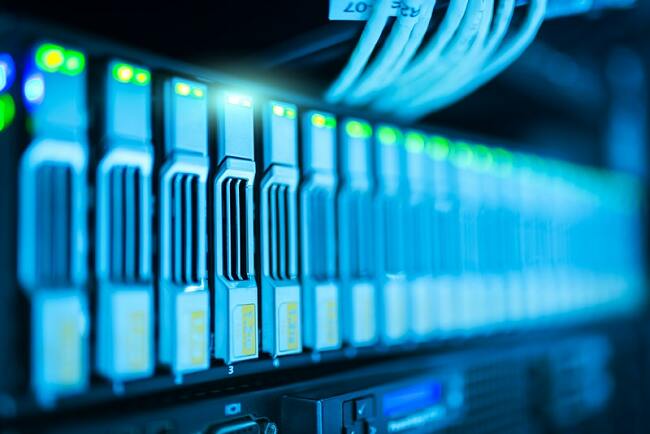
Western governments and their intelligence agencies are generally regarded as highly capable of extracting data on individuals. These agencies cross-correlate information from vast databases, such as Google searches, IP addresses on a variety of devices, debit or credit card purchases, and much more, in order to pinpoint and track a target.
Any online device can serve as a signaling antenna for people who know how to manipulate the system. Your device represents a node on a large network (the internet), and when a hacker or government agency gains access to your node, they can access almost all of the information stored on your device.
In the case of governments, they have near unlimited power with the assistance of the credit card agencies, social media sites, search engines, and others who they can compel to assist.
The statistics on the matter reveal the effects of relevant regulations and restrictions in both the least and most censored countries. Below are some interesting statistics gathered from Freedom House and the Digital Society Project:
- 79% of the world’s online population live in countries where people risk arrest or imprisonment for posting political, social, or religious content online.
- 65% live in countries that block sites that host political, social, or religious content.
- In 2024, people risked legal repercussions for expressing themselves online in a record 56 countries.
- Iceland and Estonia are regarded as the countries with the lowest levels of internet censorship, followed by Canada, Chile, Costa Rica, Netherlands, and Taiwan.
- As per a Freedom House report, Myanmar and China tie for being the most censored nations, followed by Iran and Russia. China has ranked as the worst nation for internet freedom for the past decade, and shared this designation with another nation for the first time in 2024.
- 48% of internet users live in countries where authorities disconnected internet or mobile networks at some point. Frequently, authorities had political motivations for disconnecting internet access.
- 52% of users live in countries that temporarily or permanently restrict access to social media.
- 66% of internet users live in countries where pro-government commentators are employed to manipulate online discussions.
- 67% of internet users live in countries where, since June 2023, people have been attacked or even killed for their online activities.
4. Censorship Around the World
The most commonly cited and respected report on global internet censorship is the annual Freedom on the Net Report.
Published by Freedom House, an organization that focuses on expanding and defending freedom globally, these reports provide analytical data and research into the state of online freedom in countries that censor the internet and those that don’t.
Each country is assigned a rating, ranking them from least to most censored.
According to the 2024 report, Iceland and Estonia are regarded as the least censored countries, while Myanmar and China are the most.
Iceland scored 94, Estonia 92, Canada and Chile 86, Costa Rica 85, the Netherlands 83, and Taiwan 79, placing these countries at the top of global internet freedom rankings and demonstrating the least risk of censorship.
On the other hand, Myanmar and China scored 9, Iran 12, Russia and Cuba 20, and Vietnam and Belarus 22. Internet censorship, as explained in the 2024 report, is also particularly high in Saudi Arabia, Uzbekistan, Pakistan, Ethiopia, Sudan, Egypt, Bahrain, and Venezuela.
The report also divides countries into free, partly free, or not free. Out of 72 countries tracked in 2024, 17% were free, 35% were partly free, and 35% were not free. The remaining 13% were not assessed.
| 10 countries with the least internet censorship | 10 countries with the most internet censorship |
| Iceland – 94 | Myanmar – 9 |
| Estonia – 92 | China – 9 |
| Canada – 86 | Iran – 12 |
| Chile – 86 | Russia – 20 |
| Costa Rica – 85 | Cuba – 20 |
| Netherlands – 83 | Vietnam – 22 |
| Taiwan – 79 | Belarus – 22 |
| Japan – 78 | Saudi Arabia – 25 |
| United Kingdom – 78 | Uzbekistan – 27 |
| Germany – 77 | Pakistan – 27 |
5. How Censored Is Social Media?
Social media is becoming increasingly censored around the world.
WhatsApp, owned by Meta, is a popular messaging application that a number of governments are banning. This is primarily because conversations are end-to-end encrypted, preventing intelligence agencies from spying on communications, and governments cannot compel the service to hand over user data—unlike Facebook and other applications.
In recent years, governments worldwide have increased their attempts to censor social media. Internet censorship seems to be increasing, and social media is now a prime target for governments.
The 2024 Freedom House report also looked at the rate and nature of media manipulation in 41 countries that either held or prepared for a political election during the study period. In 25 of these countries, governments blocked websites that hosted political, social, or religious content or conversations, allowing authorities to censor content they found objectionable.
In 21 countries undergoing or preparing for elections, pro-government commentators manipulated online content by spreading lies about the democratic process, manufacturing support for official parties, and discrediting parties opposing the existing leadership.
The continuing development of AI and machine learning has led to increasingly realistic fake accounts that can spread disinformation to wide audiences. Moreover, deep learning algorithms (specifically those using generative adversarial networks (GANs), natural language processing (NLP), autoencoders, and convolutional neural networks (CNNs)) can now be used to generate deepfakes.
Also known as “synthetic media,” deepfakes can manipulate images as well as real-time video and audio to create convincing depictions of people doing and saying things they haven’t done or said. Deepfakes can involve swapping likenesses, imitating voices, and creating entirely fictional scenarios.
Recent events, including the ongoing conflict in Ukraine, have showcased how governments and other agencies can leverage these techniques:
- False accounts on TikTok were used to spread disinformation about BBC reporting on the war.
- Mass text messages were sent, supposedly by Ukrainian officials, to residents of Kharkiv, ordering a mass evacuation as part of an attempt to psychologically weaken Ukrainians as Russian troops advanced on the city.
- A fake video with Ukrainian President Volodymyr Zelenskyy telling Ukrainians to put down their weapons surfaced online in the early days of the war. It was quickly refuted by Zelenskyy.
Part of the reason these threats are finding traction is that fewer people are going to traditional news outlets, such as print newspapers or television news publications, for information.
Skepticism about these outlets, which has largely taken root due to the ties between publication ownership and what is or isn’t published, has meant that many people are turning to alternative news sites such as Medium, YouTube, and other social media outlets to get their information.
That the press and television are controlled and centralized has helped fuel skepticism about their motives. However, reputable news organizations adhere to strict standards of in-house and third-party fact-checking, editorial oversight, and corrective policies when they publish a mistake. These measures help ensure that responsible parties are held to account if they publish misinformation or disinformation.
Because the internet, on the other hand, is not centralized and isn’t a single industry, it has neither the ethical standards of professional journalism nor a governing body to hold people accountable to those standards.
With communication channels such as newsletters and social media, misinformation and disinformation can spread around the world at nearly the speed of light. Manipulating public opinion via social media spamming is regarded as the most effective tactic for the new era of content dissemination, followed closely by internet censorship.
6. How Censored are Online News Sites?
Although it’s widely known that some online news sites in the West (e.g., the Wall Street Journal or Financial Times) are largely biased based on political or business affiliations, the government does not censor them greatly in terms of what they can publish.
Many alternative news outlets have also cropped up on YouTube and other channels, which are completely independent and free. While many are claiming that YouTube is censoring popular news channels and social media, this has mainly been shown to be untrue.

For a true sense of what the censorship of online news can look like, it’s necessary to travel to countries where the government has a vested interest in controlling what information their populations can access.
Recently, Egypt, Afghanistan, China, and Turkey have all ramped up online censorship. Turkish President Erdogan has traditionally kept the physical media under strict control, as reported by Chatham House, and has now extended his reach to all online news outlets.
In countries that censor the internet, it is simply not possible to post news that runs contrary to the dominant ideology. This is very much in contrast to countries with greater online freedoms, where, despite all complaints, it is entirely possible to post negative comments on all politicians and ruling elites.
Some of the best examples of the lack of censorship in these countries come from the US, where President Trump has often been ruthlessly mocked for everything from his opinions to his appearance. In countries with restrictions around what can and can’t be said about the ruling government, this same commentary would result in a quick prison sentence.
It should be noted that while online news sites in many more developed nations are not censored, they are all going to portray news in a certain way.
This is because there is a set of standards regarding how the news is reported. For example, there are never going to be any graphic details on such events, as it would upset viewers. The news should always provide only verifiable, factual information about issues, regardless of their complexity or prominence in the public eye. a few bare details on complex issues.
In this respect, even in the least censored countries, all content is going to be censored to a degree. However, there is a difference between outlets in places with a free press being their discriminating and those that are compelled to spin a certain narrative due to their associations with government or mega-corporations.
7. Censorship in Education
While censorship on social media is a matter of primary concern, there is also a significant amount of censorship in education.
Internet censorship can have a disastrous effect on children. This can be observed most commonly in countries that censor the internet, such as China, where students and even adults travel to democratic countries for the first time and find that the world is nothing like what they have been led to believe by the Chinese curriculum.
Of course, this phenomenon is not specific to China. National schools all across the world do, to a greater or lesser degree, create curricula that shine a positive light on the country in question.
For example, Turkish President Erdogan once fired 21,000 professors from privately run universities across the country. This is a common technique used by dictators, who understand the threat of exposing young minds to truthful information about both past and current events that could put them in a bad light.

Erdogan is also behind the blocking of Wikipedia as well as Facebook, YouTube, Google, and other online media. Turkey is also in the ongoing process of handing out lengthy prison sentences to journalists under the country’s anti-terror and anti-defamation laws.
There have also been attempts to rewrite history in the US. This has mainly been done by removing all accounts of political dissent—for example about the US’s involvement in various Middle East nations—from digital official records and educational resources. This is done to promote a unified sense of patriotism in support of all activities completed by the national government.
All accounts of protest and dissent are brushed over to make it appear as if the US has always been a united nation striving to establish worldwide peace and unity, despite the fact that censoring either high school or university curricula without a valid reason is illegal as per US case law.
Students in high schools across Colorado refused to accept this censored version of history and staged mass protests against the manipulated curriculum, which amounts to a revisionist history.
8. How is Online Censorship Achieved?
There are four primary ways to achieve online censorship: IP blocking, keyword filtering, DNS poisoning, and imprisoning offenders.
IP Blocking
In countries that censor the internet, IP blocking is one of the most common modes of censorship. This happens where the government orders Internet Service Providers (ISPs) to block certain sites and domains. Failure to comply with these orders often comes with the risk of serious fines.
There are not very many ISPs in any given country, or even on a global scale, the sector is quite monopolized. This means that the government only has to compel a few of the larger ISPs to follow the IP blocking directions.
Keyword Filtering
Keyword filtering is another form of censoring information. All websites, communications, and other content that contains certain keywords are automatically blocked from being executed.
There’s an example of this in China, where the social messaging application WeChat will actually block chats that contain keywords that have the potential to undermine the reputation of the ruling party.
Search engines can also be ordered to perform this type of keyword filter. On a country-wide basis, this requires a complex intrusion detection system (IDS).
DNS Poisoning
This is alternatively known as DNS (domain name service) spoofing, DNS tampering, or DNS hijacking. This means that corrupt DNS data is diverted to a different IP address.
Again, China provides the perfect example. People who try to access sites such as Facebook from within the country will be diverted to a different site. Additionally, people who try to access these sites could face a visit from the authorities, under certain circumstances.
Domain names are more difficult to change compared to IP addresses, which makes DNS poisoning more effective than IP blocking. DNS poisoning and keyword filtering can often be deployed together for a more comprehensive censorship regime.
Fines and Imprisonment
Nothing works quite as well as throwing somebody in prison for publishing or reading information that goes against the ideology of the ruling party. While not seen in the least censored countries, this is a tactic often used by authoritarian regimes such as China or North Korea.
China’s internet police force is estimated to have around 50,000 officers who are working to “purify the internet”. These are people who track and monitor activity, and issue warrants and arrests for “offenders”.
This creates a sense of fear surrounding online activity and discourages citizens from doing anything online that the government doesn’t approve of.
9. How to Avoid Censorship
The fact of the matter is, unfortunately, that censorship is looking set to increase everywhere and you are going to need to protect your online identity as much as possible in the years to come.
There are a number of ways to avoid censorship, some more effective than others. Consider the following to maintain a good digital practice.
The Virtual Private Network
The VPN—short for virtual private network—is the most direct and effective means of avoiding censorship of all kinds.
Essentially, the device you are using is given a new IP address in a different location. If you are in a country that bans a certain site, you can change your IP address using the VPN to a country which allows that site.
They are often very simple to use and set up and all the information that you send is encrypted, so anybody listening in will not be able to understand anything you are doing.
However, they do have a tendency to slow down internet speeds, which can be frustrating. NordVPN, IPVanish, and ExpressVPN are among the most highly-regarded VPN services.
1. ExpressVPN
2. CyberGhost
3. Private Internet Access
Know Your Rights
Sometimes moderators might modify or delete a comment on social media, so it can be very helpful to know your rights when content that you publish is censored.
Some of these content removals are in violation of legally established rules and principles surrounding free speech. Everybody using social media has free speech rights which they can exercise.
People who have been unfairly censored should get vocal about the issue to bring awareness to censorship, even in countries with the least internet censorship.
Choose the Right Search Engine
Google has long held the title of “best search engine” in the public eye due to the efficiency of its algorithm.
However, the reason behind this is that Google’s algorithm tailors the results towards you. It knows your search history and displays ads and results based on prior data obtained.
This has meant that privacy-based search engines that don’t keep records of your data often serve users results that appear to be strange. That said, these results are actually more objective than Google’s.
There’s a variety of private search engines coming out to meet the demand for privacy and anonymity. And their algorithms are closing the gap between them and Google. DuckDuckGo, Swiss Cows, and Start Page are all Google alternatives that do not track or store any data on users.
Choose the Right Social Media
Some social media channels are much worse than others when it comes to censorship. Facebook is certainly one of the worst choices if you believe in internet freedom.
The platform has a history of scandals related to selling user data for profit, as in the Cambridge Analytica scandal.
There are a number of Facebook alternatives with a focus on privacy. Many of these social media channels encrypt all data, do not store records, and do not display ads. Popular sites include Vero, Steemit, Ello, Mastodon, and Diaspora.
Encrypt Your Data
When your data is encrypted, it’s scrambled into an almost indecipherable string of letters and numbers. That cipher can only be decoded using a particular key that is only held by you. This means that the government or corporations cannot decipher the message.
Although all encrypted data can be cracked with enough computing resources, the amount of time and effort this takes means that it’s not worthwhile—or really feasible—for online spies to do this.
You don’t need to encrypt the data yourself, just use services that encrypt your transmissions. A VPN will encrypt all of your online activity, while private email services such as ProtonMail will end-to-end encrypt all email messages, and private messaging applications such as Whatsapp and Telegram Chat end-to-end encrypt all messages.
Use the Net Less
In the future, people may find evading censorship increasingly difficult. Tomorrow will be a world of artificial intelligence, and super smart devices that interact with each other.
This means that one of the best ways to avoid online censorship is and will be to be online less.
Posting less and detaching from technology leaves behind nothing for the government to track. Plus, moving away from online shopping and buying local products in physical stores which will help the environment and hamper large corporations who are actively tracking, monitoring, and trading data.
Support Free Speech Organizations
It is essential to use a VPN, reduce time spent online, and use private social media and messaging services where possible. However, these are only stop-gap measures.
Unless we voice our opinion and push back against the corporations and the government, internet censorship is likely to increase and continue. One way to do this is to support free speech organizations in any way possible.
Freedom House is an organization that aims to defend and expand freedom, including online freedom, internationally. It carries out a variety of advocacy work, including generating policy recommendations and driving programs to promote freedom and democracy in some of the most repressive societies around the world.
Support Free Media Organizations and Alternative Publications
A healthy society is absolutely dependent on a free press. There are a number of free press organizations who campaign for a free and independent media. These include The Committee to Protect Journalists, The American Civil Liberties Union (ACLU), The Society of Professional Journalists, and The Freedom of the Press Foundation.
Use Distributed Ledger Technology (Blockchain)
Distributed ledger technology (also called DLT or blockchain) is a concept where transactions are recorded on a distributed ledger.
Because nobody owns the blockchain and the servers are ‘distributed’ across the world, the government cannot censor anything. In most instances, there is no company to sue and no people to investigate.
Blockchain also has applications for protecting your data online. For example, Liberdy.io aims to give data back to consumers.
The application manually checks what information companies such as Facebook, Amazon, and Google have on certain individuals. The individual can then demand the data back and offer to sell it to advertisers, instead of having the information harvested for free by these sites who sell it back and forth multiple times.
In the both least censored countries and most censored countries in the world, blockchain is seen as an empowering way to turn the tables on data exploitation.
Editor’s Note: We value our relationship with our readers, and we strive to earn your trust through transparency and integrity. We are in the same ownership group as some of the industry-leading products reviewed on this site: ExpressVPN, Cyberghost, Private Internet Access, and Intego. However, this does not affect our review process, as we adhere to a strict testing methodology.
10. Conclusion: How to Avoid Censorship in an Era of Enforcement
While internet censorship is becoming more egregious, the future is better than one might expect.
With the rise of blockchain, the internet itself, along with social media and news sites, is becoming decentralized. This means that there will be platforms that can perform the functions of the internet and social media sites, but that are immune to government censorship.
In the meantime, best practices must be adhered to. A VPN is a necessity, and is the first and most important step. After this, private messaging and social media sites should be selected over Facebook, X, and Instagram. Gmail should be replaced with an encrypted email service and a private search engine should help to keep your queries safe.
If you perform these functions, you will have done your duty as a global citizen and will have completed a relatively good job of keeping corporations and governments away from your data.
For extra points, lend your voice and possibly financial support to free media and civil liberties organizations. You can also start using privacy-first technology as it becomes accessible, aligning with the concept of an unrestricted and open society. The more people that use these technologies, the faster the transition will be from an internet that can be censored to an internet that is immune to censorship.
Attention: WizCase owns the visual and written content on this site. If our cybersecurity insights resonate with you and you wish to share our content or visuals, we ask that you credit WizCase with a link to the source in recognition of our copyrights and the diligent work of our expert cybersecurity researchers.


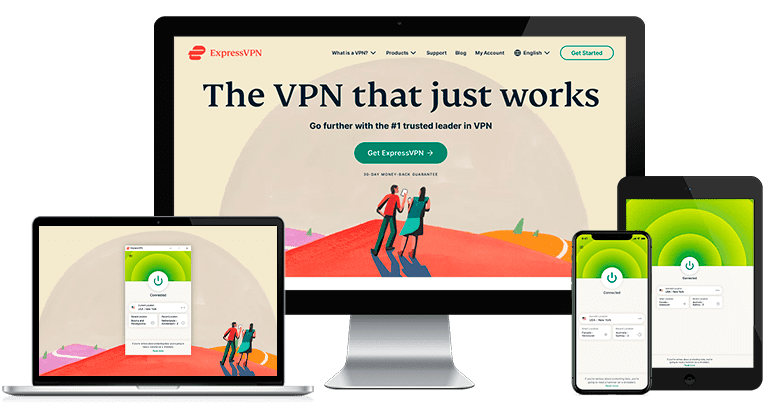
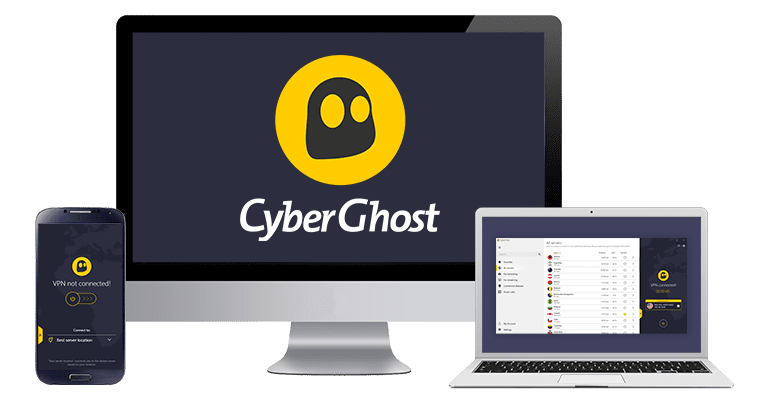
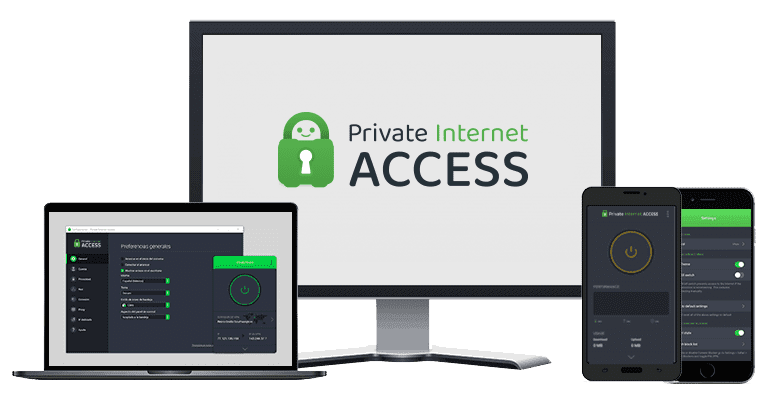


Leave a Comment
Cancel